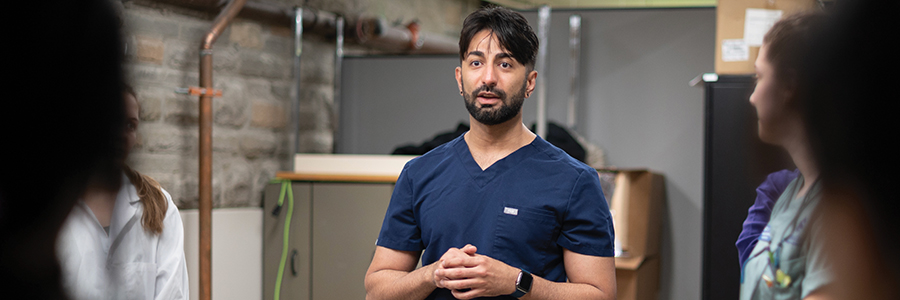
Tell us a bit about your background and why you decided to come to UBC.
I grew up in Pakistan and completed dental school there. The curriculum included an outreach program where we went into rural communities to provide dental care and I realized the huge disparity in accessing oral healthcare in my home country.
The experience piqued my interest in public health, and I decided to apply to UBC to pursue graduate work because it had a strong public health dentistry program.
What was the focus of your PhD research?
I looked at oral health care access and treatment needs for people living with HIV in BC. This population has high unmet oral health needs, which is related to stigma and discrimination—people living with HIV often fear being mistreated or judged by their dentist.
How did UBC Dentistry influence where you are today?
The UBC Faculty of Dentistry has shaped me on many different levels. From an academic perspective, I had amazing mentors who influenced how I teach and interact with my students and patients.
My time at UBC also shaped who I am as a gay man of colour. I came out while I was a graduate student because the environment was so open and welcoming. Being at UBC was the first time I felt I could be truthful to myself while also being a dentist and an academic.
How did your PhD research influence your current work?
I am an assistant professor directing the curriculum renewal at Western University. My research looks at barriers to accessing oral healthcare in marginalized communities, and I also lead Western’s community dental outreach program. I established this program, a collaboration between Western and several southwestern Ontario organizations that work with marginalized populations, to provide resources and training around oral healthcare. All of our third- and fourth-year dentistry students also go into the community a few times a year and provide free dental treatment, which is supported through my competitively secured grants.
I’ve also developed partnership programs in Uganda, Rwanda and Kenya, where we work with high-risk communities and study the oral healthcare disparities in these populations. We’re focused on finding ways to build capacity and train locals on how to provide sustainable dental care.